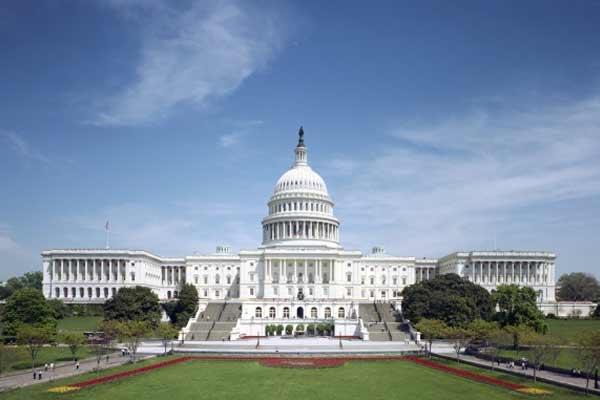WASHINGTON, May 14, 2015 – Legislation that could affect benefits for service members and veterans was the focus of a senior Defense Department official’s testimony yesterday during a Senate Veterans Affairs Committee hearing.
Anthony M. Kurta, deputy assistant secretary of defense for military personnel policy, told the panel the Defense Department supports a provision in proposed legislation that would consider active duty performed under the authority of Title 10 U.S. Code Section 12-301(h) as qualifying active duty for the purpose of Post-9/11 GI Bill education benefits.
Reserve component members wounded in combat are often given orders to active duty under this provision to receive authorized medical care, to be medically evaluated for disability, or to complete a required health care study, Kurta explained. But as currently written, Title 38 U.S. Code Section 3301(1)(b) does not include active duty performed under 12301(h) as qualifying active duty for Post-9/11 GI Bill educational assistance, he added.
At Issue: Recovery Time
Currently, when reserve component service members on active duty who are injured in military operations remain in the Selected Reserve on active duty, none of the time spent in recovery under this status is qualifying time for purposes of the Post-9/11 GI Bill, Kurta said.
“In this case,” he told the panel, “the service member would return to Selected Reserve status with less qualifying time than those who served an entire period of active duty without an intervening injury.
“As a result,” he continued, “the service member would not receive an educational benefit equivalent to the other members of his or her cohort. In effect, the service member is being penalized for having being wounded or injured in theater. This legislation would correct this inequity by simply extending eligibility for the Post-9/11 GI Bill to service under 12301(h).”
DoD recognizes the inequity of not including this active duty time for purposes of Post-9/11 GI Bill benefits and has included a provision similar to this bill in its fiscal year 2016 legislative proposal package, Kurta said, but he noted that the DoD proposal would include only active duty performed after enactment. In contrast, he told the panel, the pending legislation would be retroactive; categorizing all duty performed under 12301(h) since Sept. 11, 2001, as qualifying active duty.
Because the bill as written would generate an additional cost to the Department of Veterans Affairs, Kurta said, DoD defers to VA to determine its costs and effects.
Transition Assistance, Commission Report
Another pending bill would deny service members the ability to complete the Transition Assistance Program online, Kurta said, but the Defense Department position is that DoD and its interagency partners should have flexibility in determining what methods and tools should be used to deliver transition services to eligible transitioning Service members and their spouses.
The committee had requested DoD input on two recommendations made by the Military Compensation and Retirement Modernization Commission -- one that aims at reducing redundancy and ensuring the fiscal sustainability of education programs, and another designed to better prepare service members for transition to civilian life by expanding education and granting states more flexibility to administer the Jobs for Veterans State Grants Program.
“We support ‘sunsetting’ both the Montgomery GI Bill and the Reserve Education Assistance Program, with the view [of] maintaining the Post 9/11 GI Bill as the primary education benefit,” Kurta said. “The commission and DoD also agree that in order to keep faith with our service members, we must ‘grandfather’ those who already have the benefits that will be phased out.”
There are some concerns -- particularly from the Joint Staff -- about some of the committee’s recommendations, Kurta noted. Without data enabling DoD to understand the potential effects on retention, DoD doesn’t support the recommendation to phase out the Post 9/11 GI Bill Housing stipend for dependents or the recommendation to increase the eligibility requirements for transferring Post 9/11 GI Bill benefits.
Concurrent Unemployment Compensation and GI Bill Benefits
Kurta said another commission recommendation DoD doesn’t support would prohibit former service members from receiving unemployment compensation while simultaneously receiving GI Bill benefits.
Eliminating concurrent receipt of educational benefits and unemployment compensation may be viewed as penalizing service members who are pursuing courses at trade or vocational schools to acquire skills or certifications that would make them more employable.
“This commission recommendation could also have a disproportionate impact on reserve component service members,” he added, “because both separated and currently serving reserve component members may be affected.”
On the recommendation concerning transition programs, Kurda said DoD supports the commission’s objectives of better preparing service members for transition to civilian life, but does not believe additional legislation is required.”
“We have significantly redesigned the Transition Assistance Program over the last two years,” he said, “and implemented the Vow to Hire Heroes Act legislation enacted in 2011.” These modifications significantly address the commission’s objectives, Kurta told the senators.





